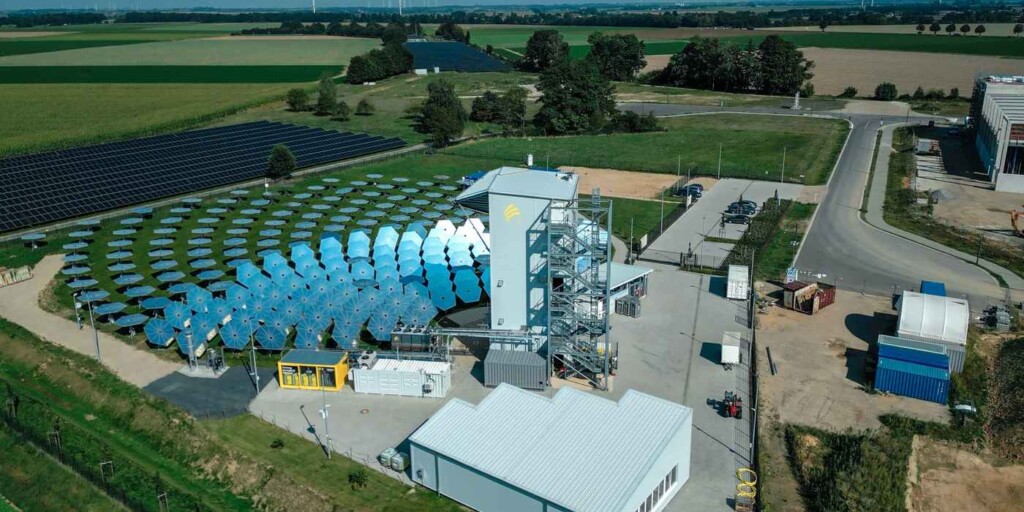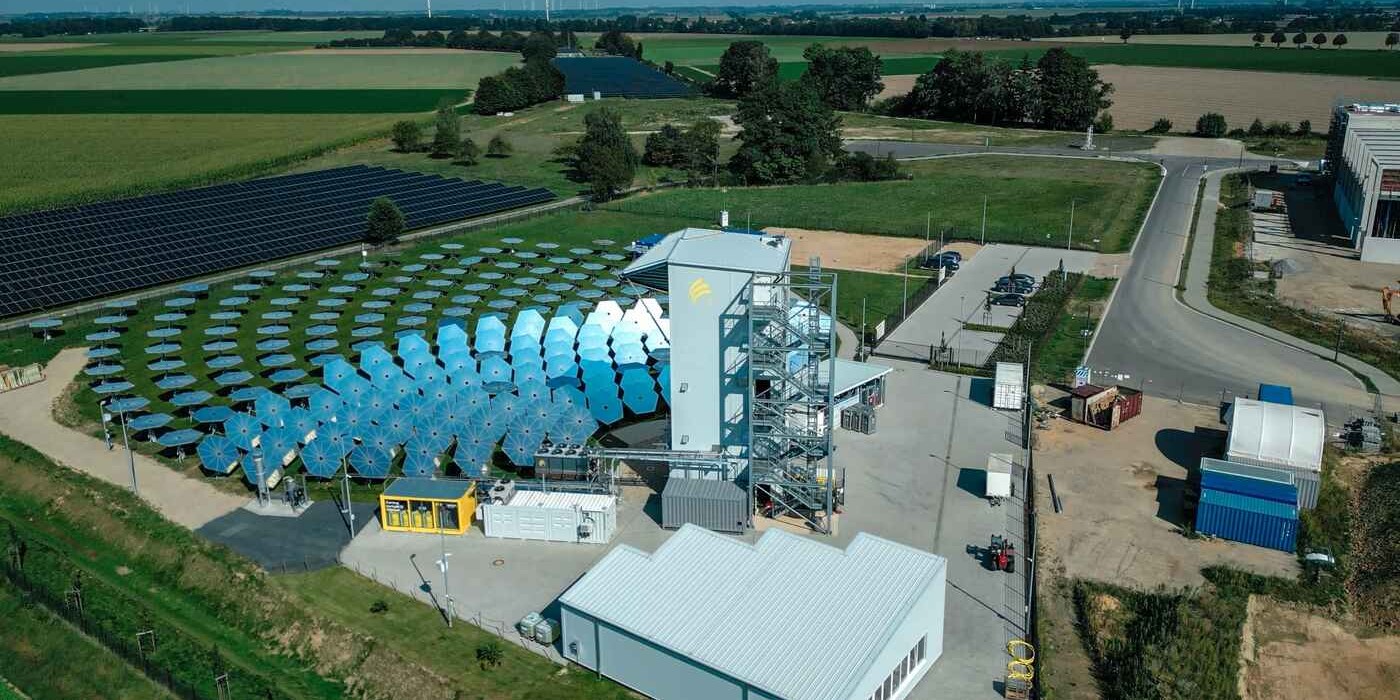
From Switzerland comes a new technology that aims to decarbonize the transportation methods we use right now.
Through a thermochemical process driven 100% by solar power, the energy startup Synhelion can synthesize gasoline, diesel, kerosene, or any other fossil fuel currently in use.
Their colloquially termed ‘solar fuels’ are carbon neutral, as they emit only as much CO2 as was used in their production, compared to fossil fuels that come from deep underground and add to the global carbon cycle.
The technology that powers the DAWN solar fuel plant pictured above relies on concentrated solar radiation reflected from a bank of mirrors into a receiver that creates temperatures as high as 1,500C°. This not only powers the production of fuels through synthesizing H20 and CO2, but also is fed into a storage system that powers the production after dark.
Launched in 2016, Synhelion has needed some time to get its feet under itself, but with its first industrial-scale plant in operation, transportation services are starting to take notice.
In September, Swiss aircraft manufacturer Pilatus Aircraft signed a five-year agreement with Synhelion that includes a commitment to purchase solar kerosene for their aircraft starting in 2027. Under the agreement, Pilatus will acquire 200 tons of solar fuel per year.
Just 8 days later, Lake Lucerne Navigation Company (SVG) and Synhelion announced an identical five-year agreement for 100 tons per year. The company’s iconic steamboats, integral to Lake Lucerne’s landscape for over a century, were originally powered by coal and later by heating oil.
MORE DISRUPTIVE TECHNOLOGIES: New Low-Carbon Concrete Outperforms Today’s Highway Material While Cutting Costs in Minnesota
With Synhelion’s solar fuels, neither these ferries, nor Pilatus’ aircraft, nor anyone else for that matter, need to retrofit or replace their existing vehicles. The solar fuels combust exactly the same as their fossil fuel equivalents, offering the chance for these firms to save tens of millions in the process of getting to net zero.
“We believe that solar fuels are, as of today, the best way to rapidly defossilize aviation,” Markus Bucher, CEO of Pilatus, said in a statement.
“Synhelion’s renewable solar fuels offer the ideal solution to defossilize our historic steamboats,” said Stefan Schulthess, Managing Director of SGV. “We’re excited to support this disruptive technology.”
TO GET EXCITED ABOUT THE FUTURE: Scientists Perfecting New Way to Turn Desert Air into Water at Much Higher Yields
The 2027 date for both agreements reflects when RISE, the first commercial-scale production facility for solar fuels is slated to be ready for operations, with the capacity to produce 1,000 tons of fuel per year from its location in sunny Spain.
Studies show that even at the current pace of electrification, there will be many remaining internal combustion engine vehicles around the world that will also need to be powered sustainably to meet net-zero emission targets by 2050.
While they still emit CO2, solar fuels also consume CO2 from the air during manufacture, and because the process is synthetic, nitrous oxide and other emissions harmful to human health are absent.
WATCH an explainer video below…
SHARE This Remarkable Future Of Fuels With Your Friends On Social Media…




















